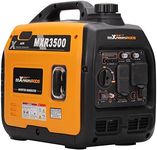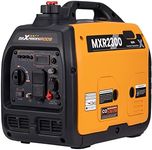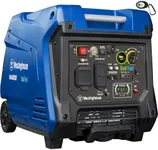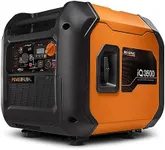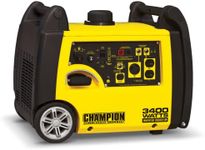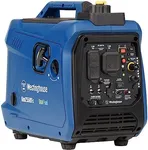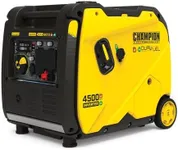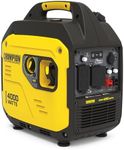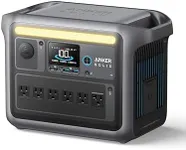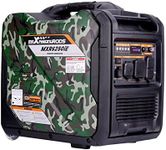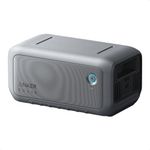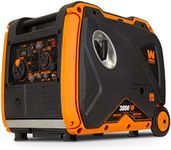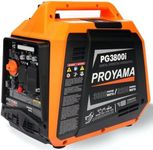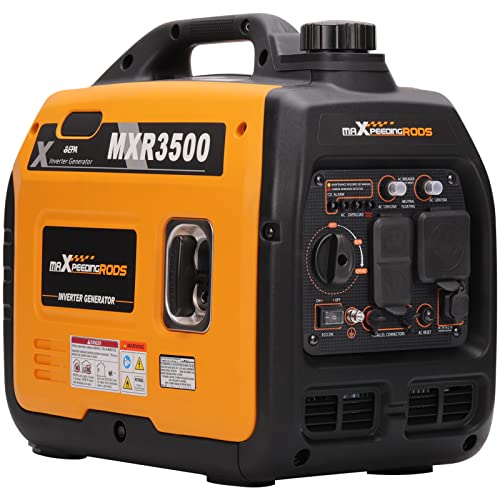Buying Guide for the Best Quiet Rv Generators
Choosing a quiet RV generator is all about balancing your need for reliable power with the desire for peace and quiet while camping or traveling. The right generator should provide enough electricity for your appliances and devices without being so loud that it disturbs your relaxation or bothers your neighbors. To make the best choice, it's important to understand the key features that affect both performance and noise levels, and to match these to your specific RV lifestyle and power needs.Noise Level (Decibels)Noise level, measured in decibels (dB), tells you how loud the generator will be when it's running. This is especially important for RV use, where a quiet environment is often preferred. Generators can range from about 50 dB (similar to a quiet conversation) to over 70 dB (like a vacuum cleaner). For most RVers, a generator in the 50-60 dB range is considered quiet and suitable for campgrounds or close quarters. If you plan to camp in very quiet areas or want to avoid disturbing others, aim for the lowest decibel rating you can find. Always check the noise rating at the distance specified (usually 23 feet or 7 meters) to compare models fairly.
Power Output (Wattage)Power output, measured in watts, indicates how much electricity the generator can provide. This is crucial because you need enough power to run your RV's appliances, such as air conditioners, microwaves, and lights. Generators typically range from 1,000 to 4,000 watts or more. Smaller generators (1,000-2,000 watts) are good for basic needs like charging devices and running small appliances, while larger ones (3,000+ watts) can handle air conditioners and multiple devices at once. To pick the right size, add up the wattage of everything you want to run at the same time and choose a generator that can handle that load.
Fuel Type and EfficiencyGenerators can run on gasoline, propane, or sometimes both (dual-fuel). Fuel type affects convenience, cost, and how long the generator can run before refueling. Gasoline is widely available but can be less efficient and requires more frequent refueling. Propane burns cleaner and is often quieter, but may provide slightly less power. Dual-fuel models offer flexibility. Consider how easy it is to get fuel where you travel and how long you want the generator to run between refills. If you camp off-grid for long periods, fuel efficiency and availability become more important.
Portability and SizePortability refers to how easy it is to move and store the generator. This includes its weight, size, and whether it has handles or wheels. Smaller, lighter generators are easier to carry and fit into tight RV storage spaces, but may offer less power. Larger units can be heavy and bulky, making them harder to move but providing more electricity. Think about your physical ability to lift or roll the generator, the space available in your RV, and how often you'll need to move it.
Inverter TechnologyInverter generators use advanced electronics to produce clean, stable power that's safe for sensitive electronics like laptops and smartphones. They are also generally quieter and more fuel-efficient than traditional generators. If you plan to charge electronics or want the quietest operation, look for a generator with inverter technology. For basic power needs where noise and power quality are less critical, a standard generator may suffice.
Run TimeRun time tells you how long the generator can operate on a full tank of fuel at a certain load (often 25% or 50%). Longer run times mean less frequent refueling, which is convenient for overnight use or when you're away from the RV. Run times can range from a few hours to over 10 hours, depending on the generator and load. Consider how long you typically need power and whether you want to avoid refueling during the night or while you're out exploring.
